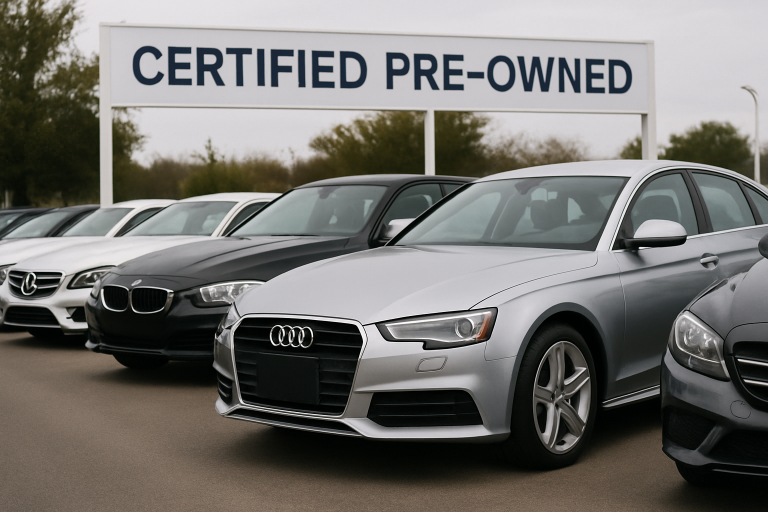Table of Contents
Introduction
Purchasing a pre-owned luxury vehicle delivers a blend of prestige and advanced technology—without the immediate hit of new car depreciation. While high-end brands hold value and allure, buying one can be complex. Doing your homework ensures you find both performance and peace of mind. If you’re considering tapping into the best of the Colorado luxury market, explore reputable dealers like Bentley Denver for a curated selection of used premium vehicles.
When you shop for luxury cars, the stakes are higher because repairs can be costly, and premium features add complexity. Savvy buyers know to weigh each step, from researching models to confirming the vehicle’s history and evaluating long-term ownership costs. Following a thorough process helps you avoid pitfalls and truly enjoy the luxury experience on your terms.
Research Thoroughly
Narrowing your choices starts with careful research. Luxury nameplates like Mercedes-Benz, BMW, Audi, and Bentley all offer unique driving personalities, levels of comfort, and reliability reputations. Utilize sources such as Consumer Reports to understand model-specific strengths and weaknesses. Forums dedicated to luxury car enthusiasts can uncover common mechanical issues or quirks that don’t show up in general reviews.
Research also involves comparing features, gas mileage, safety scores, and owner satisfaction ratings. Prioritize vehicles with robust support networks for parts and service in your area, as these are crucial for peace of mind and resale value down the road.
Consider Certified Pre-Owned Options
Automakers’ Certified Pre-Owned (CPO) programs offer more assurances than traditional used vehicles. These programs require cars to pass extensive multi-point inspections and often extend the original warranties, making them a safer bet. The higher price is justified by the coverage on major components, roadside assistance, and sometimes complimentary maintenance.
Dealerships specializing in luxury makes will highlight their manufacturer-backed CPO offerings, which can appeal especially to buyers wary of expensive, unexpected repairs. Remember that CPO terms—like warranty limits and included services—can vary by brand, so compare carefully.

Inspect the Vehicle History
Invest in a comprehensive vehicle history report using trusted platforms like Carfax or AutoCheck. These reports detail ownership changes, accident records, maintenance intervals, and open recalls. A clean report is no guarantee, but it offers transparency and helps weed out vehicles with hidden problems. Scrutinize odometer readings for discrepancies and check if the car has a branded title, such as ‘salvage’ or ‘rebuilt.’ For further best practices, visit NerdWallet’s guide on vehicle history reports.
Evaluate the Physical Condition
Luxury cars are held to higher standards regarding wear and aesthetics. Examine the exterior for mismatched paint, gaps, or misalignments that could signal collision repairs and rust in places such as wheel wells and undercarriage. Inside, look for cracked leather, worn controls, or malfunctioning displays. Even minor cosmetic issues can mean big repair bills, given specialized parts and materials.
Conduct a Mechanical Inspection
Before signing paperwork, schedule a pre-purchase mechanical inspection with a mechanic with experience with your target luxury brand. This process delves into areas like the engine, transmission, suspension, and brakes, as well as advanced systems such as adaptive suspensions or air conditioning. Inspection can reveal deferred maintenance or impending major repairs. The cost of a professional review is minimal compared to the price of a major engine or transmission overhaul.
Assess Mileage and Age
Luxury vehicles age gracefully if well-maintained, but mileage and vehicle age affect value and future repairs. Lower-mileage vehicles typically command higher prices and offer more years of trouble-free operation, but a well-cared-for higher-mileage example can still deliver immense value. Look through the maintenance history—routine oil changes, brake service, and fluid flushes are positive signs of attentive ownership.
Review Technology and Features
The technology suite of luxury cars enhances comfort, safety, and entertainment. Test every feature, from adaptive cruise control and parking sensors to navigation, premium sound, and smartphone integration. Repairing or upgrading electronics, especially in older vehicles, may be expensive or sometimes impossible due to outdated hardware. Confirming everything works as intended spares you frustration later.
Understand the Total Cost of Ownership
Owning a luxury vehicle means budgeting for expenses beyond the purchase price. High-performance parts and premium-brand labor mean costlier maintenance and repairs. Insurance premiums and taxes are higher than for mainstream vehicles, and some luxury cars require premium fuel or special tires. Build a long-term budget that accounts for these higher costs, and investigate extended warranty options for added protection.
Buying a pre-owned luxury car doesn’t have to be daunting. When you follow each step carefully, you’ll maximize your investment and enjoy all the pleasures and prestige that luxury vehicles bring—without unpleasant surprises.




